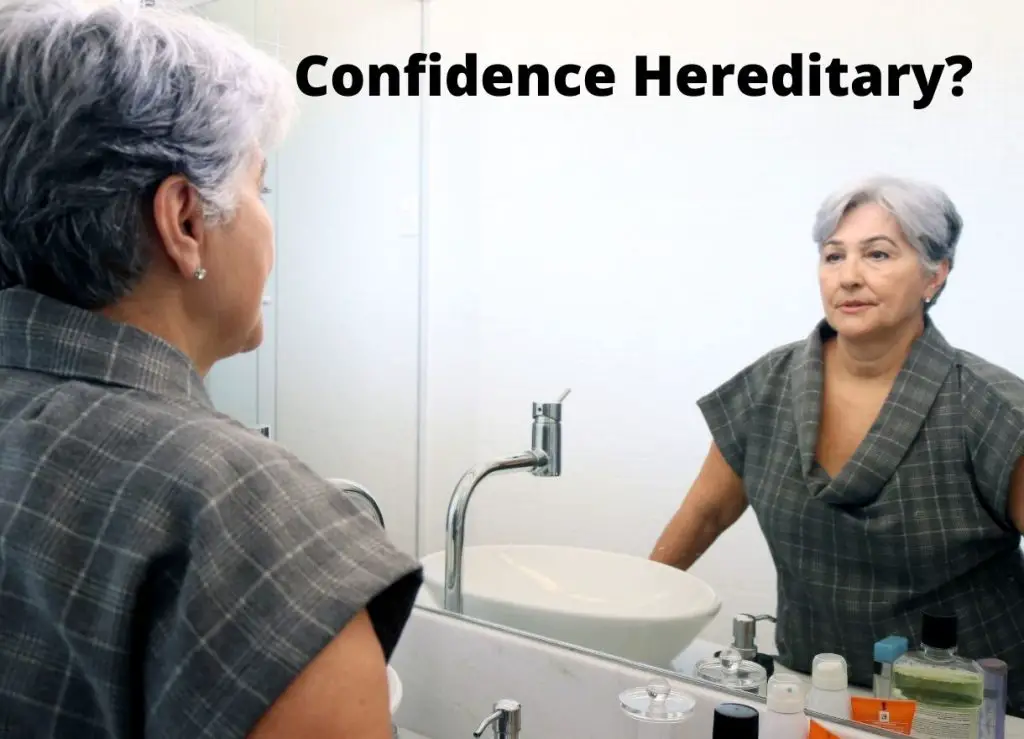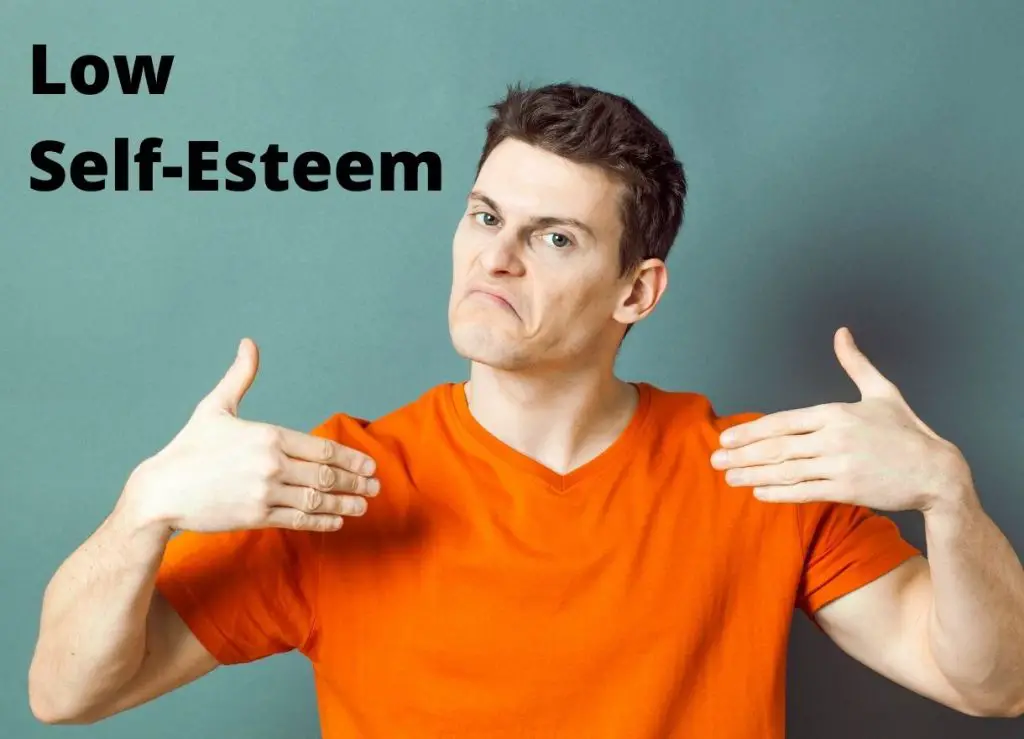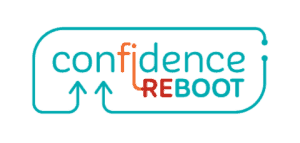
Recently one of my clients asked me whether I thought confidence was genetic. Admittedly I have always thought that it wasn’t but realized I didn’t have much confidence in my own answer.
I decided to do some research on confidence, self-esteem and how genetics might play a role in all of it. I was particularly interested in scientific studies from people who had taken time to do genetic testing. What did I discover?
So, is confidence genetic? Yes, confidence is somewhat genetic and research indicates that genes play a role in confidence, IQ, self-esteem, optimism, and your sense of being able to control your environment. Gene researchers suggest that the exact reach of genetics is still unclear, however, genes may influence between 25% to 50% of your (hereditary) confidence.
However, there are other things to consider if we want to determine your own aptitude for confidence or for others.
The research seemed a bit scattered. Confidence doesn’t seem to transcend all areas of life.
For instance confidence in dating and confidence in learning to play an instrument create a fork in the road. Let’s look what the research tells us and go from there.
Table of Contents
What The Research Tells Us About Hereditary Gene Traits And Their Impact On Confidence
Let’s look at 2 studies that were done to determine just how genetics impact / produce confidence :
| Institution / Study | Test Group | Test Type | Result |
| National Institute of Health* | 326 volunteers | OXTR: Allele A vs. Allele G | Yes: Allele G demonstrated higher levels of self-confidence |
| Professor Robert Plomin** | @15,000 fraternal and identical twins | School Achieve- ment | Yes: Identical Twins showed more consistent results across than fraternal indicating a genetic underpinning for confidence in school performance. |
*source: https://www.nih.gov/news-events/nih-research-matters/gene-linked-optimism-self-esteem
**source: https://www.telegraph.co.uk/news/science/science-news/5712472/Unshakeable-self-confidence-is-in-the-genes-claim-scientists.html
Given these examples / studies, we can see that there is an overall link between genetics and a confident disposition.
Before I go on, I want to take a quick moment to elaborate on the fraternal twins vs. identical twins study, the theory behind it was that
….if academic results were similar for the identical twins and not identical for the fraternal twins, then aptitude for “confidence” is genetic since all other variables would be isolated (such as home environment and DNA).
In fact, the identical twins did perform more uniform vs. the fraternal twins which is consistent with Plomin’s theory that genetics plays a role.
In simple terms… if
Tommy and Timmy are identical twins, and Susie and Samantha are fraternal twins (meaning they look different), and Tommy and Timmy get mostly the same grades or show the same academic performance in school while Susie and Samantha show different academic performance; then, genetics clearly play a role.
After looking at around 15,000 sets of twins, one could get an idea.
But I’m going to call timeout for a moment. How are we defining confidence? Is it intellect or is it optimism? In each one of these studies, it looks like their interpretation of the word “confidence” varies a bit.
In the first study, confidence relates more to how the subjects feel; whereas, in the second study, confidence appears to refer more to scholastic achievement which sends us down the intellectual capacity rabbit hole.
So what’s what? We may be able to spend all day on the subject, but one thing is certain that everyone agrees on is that we are looking at baseline dispositions here… personality blocks… aptitude.
Can Confidence Be Learned?

Here is an entire article I wrote on Becoming a Better Person. You might also like this one on Learning to Have True Grit. (This one is perfect for individuals who love something but are genetically positioned well to attain it, or when you feel like everyone is better at something than you are.)
Here’s my take on aptitude:
Every time I used to see a 6.5 foot tall plus individual I used to ask them. “Did you play basketball in college?”, the answer was nearly always, “yes.” Until one day I said this to a tall guy.
“You are really tall… were you a dancer?” His reply, “No, but I played basketball in school.” You see where I’m going with this?
The point is that there are also relatively short people in the NBA. So, basic genetics is only part of the story.
You might be tall, but not able to dribble or run worth a hoot. So, does that mean that you should be playing ball?
I think while science tells us there is a correlation, correlation doesn’t equal causation.
This means that while you might drop out of the womb with an innate instinct towards confidence, life might throw you some curve balls that cause you to doubt yourself.
At the end of the day, if you have made it all the way down to this part of my review of confidence being hereditary, it’s safe to say that you have tenacity enough to determine your own sense of confidence.
If I’m short, but decide to dedicate everything about myself to becoming the best basketball player ever, I may possess a trait that compensates for being vertically challenged.
Is Confidence Innate And Can You Do Something About It?
Human beings are marvelously adaptive, just consider hearing loss, or sight loss and how individuals compensate.
I think it is far to early to tell whether the genes equal your potential. While the researchers don’t dispute that these personality blocks don’t have to mean that you can’t be confident, they have made
The beauty is that we become what we think about, and for me, I’m going to tell my client that while there is scientific research indicating that there are natural differences, who he is in the world is up to him and his commitment to being the individual he seems himself destined to be.
Is Low Self-Esteem Your Fault?

Kind of the big question here is whether a sense of low self-esteem and a lack of confidence is your fault. Or could it be impostor syndrome? Here is an article I wrote on: How common is impostor syndrome? For an answer to this, we have to go back to the top of this post.
There is a genetic basis (based on current science) that supports the concept that your basic wiring determines whether you have ended up with low self-esteem. Add to the mix, that you inherited your genes from your parents who may have a similar issue, and you will find yourself growing up in a dis-empowered home environment.
Of course, you have a high likelihood of suffering from low self-esteem. But the fact that we have free will and no one can predict what potential you have stored up in you, you can do something about it.
What’s The Best Way To Learn Confidence
In my experience coaching others and in my own studies, the best way to learn confidence is to be intentional about it.
If you take the subject of confidence and study it the same way you would go about learning a language or learning to play an instrument, you’d be surprised at how much you can increase your confidence.
Now you might be thinking, “Okay, but that seems a bit odd. How would reading and studying confidence help me have more?”
Truth is I’m not sure about how all of it works. All I know is that my mentor was given a book on personal growth, which he studied every day. In a year, he went from earning 6,000 to over a million.
The change happens in the subconscious mind.
If you could be intentional about it, studying the material for at least an hour every day, it can make a profound change.
The reality is most of us are a bit lazy. The idea of reading a book on personal growth for an hour a day every day may sound a bit like flossing.
If you are like me, I have a history of starting things and then falling off.
However the one thing that I have been able to be consistent about has been in this area. It has become the entire focus of my existence.
I love seeing what I’m capable of and what greatness is dormant in my clients.
Why Would You Want More?
Right… so the idea of coming off like the Jerk at 7eleven who butts in front of the little old lady to get his scratch-off tickets isn’t exactly what we mean by confidence.
At the same time, if you have ever been called cocky, you might shrink back at the idea of acquiring more confidence, but overall having more confidence tends to create more resolve in an individual.
Read more about the difference between cocky and confident here.
Confidence is highly desirable. When I think of someone who is confident, I think of a quiet inner strength that comes from knowing who they are, who they aren’t and being OK with it.
When you lead from a place of confidence, I find it opens other doors to greater things, so acquiring confidence reminds me of collecting keys that you can use to open new doors when the time is appropriate.
What Are Some Of The Common Characteristics Of True Confidence?
I usually find that confidence shows up like a specific resolve, a quiet tenacity, a clear mind in individuals who possess it.
Individuals who are confident come off solid. Of course this is generally speaking. I’m not talking about when someone is upset or angry.
I mean in general when I interact with confident people, they tend to be solid, clear minded and open to conversation. Usually they also don’t spend a lot of time trying to convince me something stinks.
In other words, they don’t spend their time putting other things or people down. There is simply no need.
How do they look? This one is a bit tough. I’ve seen confident people who wear comfortable (whatever they feel like) clothes and I have seen them well dressed. Overall however, they are usually well groomed.
How do they sound? I have noticed that confident people speak up and are clear with their messaging. Usually what they say and how they say it comes from a sense of conviction.
How do they move? I find that confident people tend to move deliberately. Speed isn’t really the issue here. The only way I can describe it is deliberate.
Here is a whole article on how women can walk with confidence. Avoid common mistakes.
If you want to discover whether you have confidence set a random time on your watch or phone and have it alert you at a random moment.
In that moment, stop and ask yourself “How do I look right now? How do I sound? How am I moving?”
These 3 questions might help you dissect what areas in your life could be worked on.
You can also ask what would someone else think of the way I’m doing these 3 things right now.
You might or might not find this helpful at all. Just keep in mind, the goal here is to get connected with how you are being out there in the world.
Confidence is about being rather than about saying.
In other words, we can pretend when we want to (which interesting to consider in itself), but how we are when we aren’t paying attention is most likely a better indicator of our true baseline of confidence.

Related Questions
What causes low confidence?
There are two major causes of low confidence in my coaching experience.
- Traumatic failures can cause you to lose faith in yourself. Examples of this can be things like falling off a horse, failing exams, failing in school. (Do you know how many doctors and lawyers have failed their exams? You might be surprised –Read this article). They usually are usually losses or failures that are quick, powerful and painful.
- Long-term suggestive conditioning. This is where someone in authority is consistently degrading towards you. Most of us ask ourselves the question, “Am I good enough.” We often bring that question unintentionally to others. Depending on what they tell us, sets the tone for our confidence level.
What affects self esteem?
Confidence is something that we use to describe someone’s ability at something (i.e. she is a confident pianist), but it is also used to describe an overall sense of optimism and self-esteem.
How you were raised and the experiences of success and failure shape our self-esteem. The essence of all of that create your subconscious mind. Self image is housed in that part of your mind.
It involuntarily gives you your identity. I think of it like the hard drive in the computer.
How do you overcome low self esteem?
- Surround yourself with people who build you up and are supportive. For this, you may have to change your environment. (Check out my article on inspiring things you can do to change your environment)
- Repetitive learning: I like to have my clients review the same information over and over again until it becomes a part of them. This is unconventional, but I have seen amazing results of this. For instance, you may choose to read a book (the same book) or a passage every day for the next year. This can have an astonishing impact on your subconscious mind.
